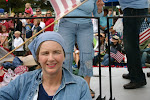by Lyn Jensen
On April 4, 1981, at Perkins Palace, a converted movie theater in Pasadena, the Knack's friends, fans and followers agreed it was among the best shows the rock group had ever done. It wasn't a show for trend-hoppers, it was for Knack fans.
It was for fans who've liked the Knack since "My Sharona" first blasted over their radios--or even earlier, who bought
But The Little Girls Understand and didn't care what anybody said about it, who've fought off the punches thrown by Knack-haters, who are primarily in the media anyway.
After all the Four Lads from Los Angeles have been called--in print--everything from vicious sexists to cultural creeps to a smutty Beatles rip-off. "There's been a lot written about us in the last couple of weeks, the last couple of years, and we want to thank you people for being so loyal," said Knack bassist Prescott Niles. "You can give yourselves a hand."
Many other contemporary rock groups may beg to differ when they're described as "The new Knack," but the fact remains a lot of people think a lot of other Los Angeles groups sound a lot like the Knack. If imitation is the sincerest form of flattery, then the Knack may be the most flattered group around.
At the same time, despite charges to the contrary, the Knack are now proving they imitate no one. All comparisons to other groups, from the Beatles to the Cars, crumble when discussed on anything but the most superficial level. When all that complaining stops, we're left with one of the most versatile, talented, and boldest bands of the new decade. No one should be allowed to knock the Knack until after witnessing how they grind out the beat in concert. If any of the so-called imitators wants to bury the Knack, they'll have to work a lot harder.
This evening they played about half their recorded material, throwing in two cover oldies ("Tequila" and "A Little Night Music") and maybe half-a-dozen new songs along the way. There's enough variety to encompass everything from the sweet-and-innocent "Heartbeat" to that tirade against a tease, "She's so Selfish," from the sultry moody ballad, "Can't Put a Price on Love" to the semi-psychedelic "Monkey and Me."
Their style isn't old-fashioned but it isn't smutty either. They can lay down a jam, and jam they do. They have variety in their work but they've developed their own distinctive style, too. Despite all the media talk about a change in direction, their new songs aren't really all that different. They fit in with the Knack's distinctive sound.
Racy songs about girls still predominate but there are a few songs not about love, or sex, and those fit into the still-developing New Wave that the Knack have ridden to stardom on.
If the Knack's time on the Los Angeles scene may be compared to the Beatles at the Cavern Club, the visual aspects of the Perkins Palace concert must have been as spare as those "Cavern Club" days. Any show had to come from the four band members and nothing else. They have traded their sixties-era black-and-white look in for more casual wear: Niles wore a punkish purple, drummer Bruce Gary a red-and-white baseball outfit, guitarist Berton Averre looked neo-mod in blue.
Doug Fieger looked sexy in black tight jeans and half-open shirt. Maybe it does take a woman (not a "little girl," guys) to understand and appreciate Fieger. Chances are what men see as arrogant and egotistical women may find charming and charismatic. He's accused of singing smut, but he nearly blushes when a fan storms the stage and kisses him. He's a frontman. He commands the stage in those unisex-looking high-heeled boots, tosses his long hair as one earring glistens, munches on a fan's carnation, gets into a howling contest with the audience, and his face expresses each song as much as his voice does.
Opening the show was the Toasters, another Los Angeles New Wave quartet, but one that hasn't had the Knack's level of success--and this show let us know why. On a scale of one to five, their music wavered between a two and three. Their female bass guitarist was the only member that demonstrated the kind of appeal necessary to win a mass audience, and she was allowed to front the band only twice.
